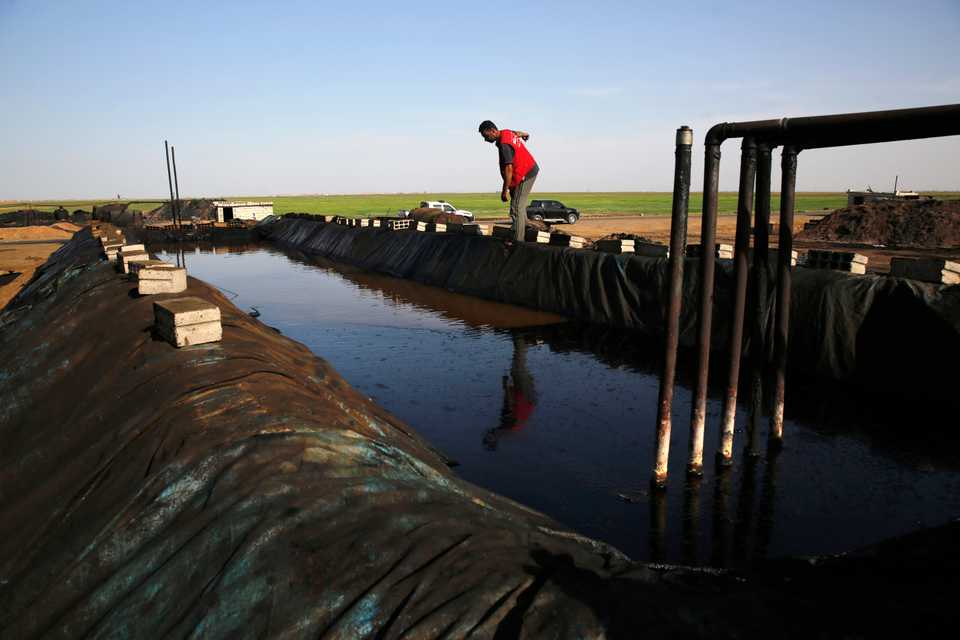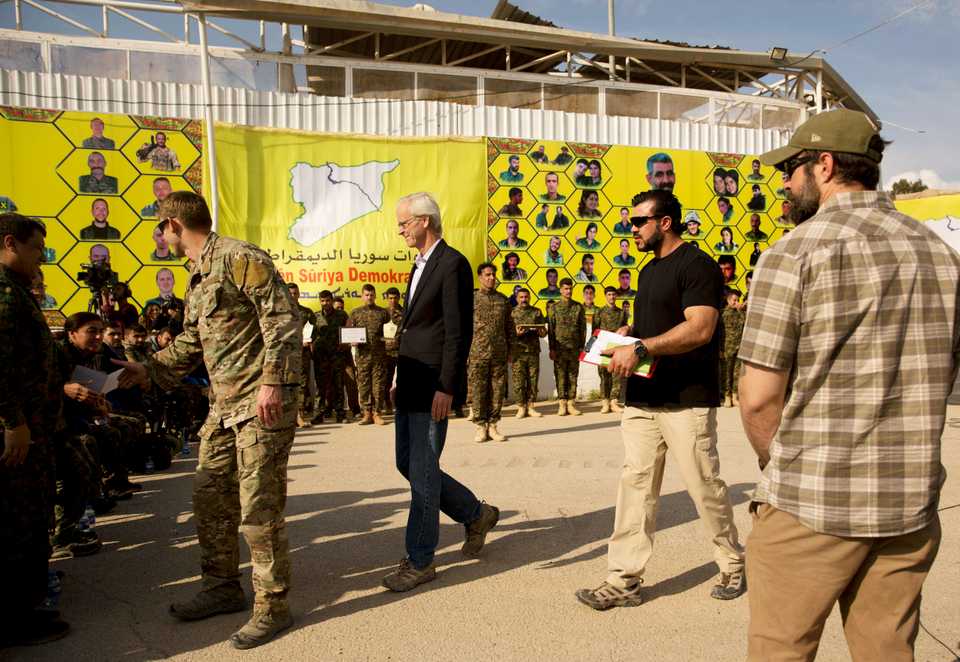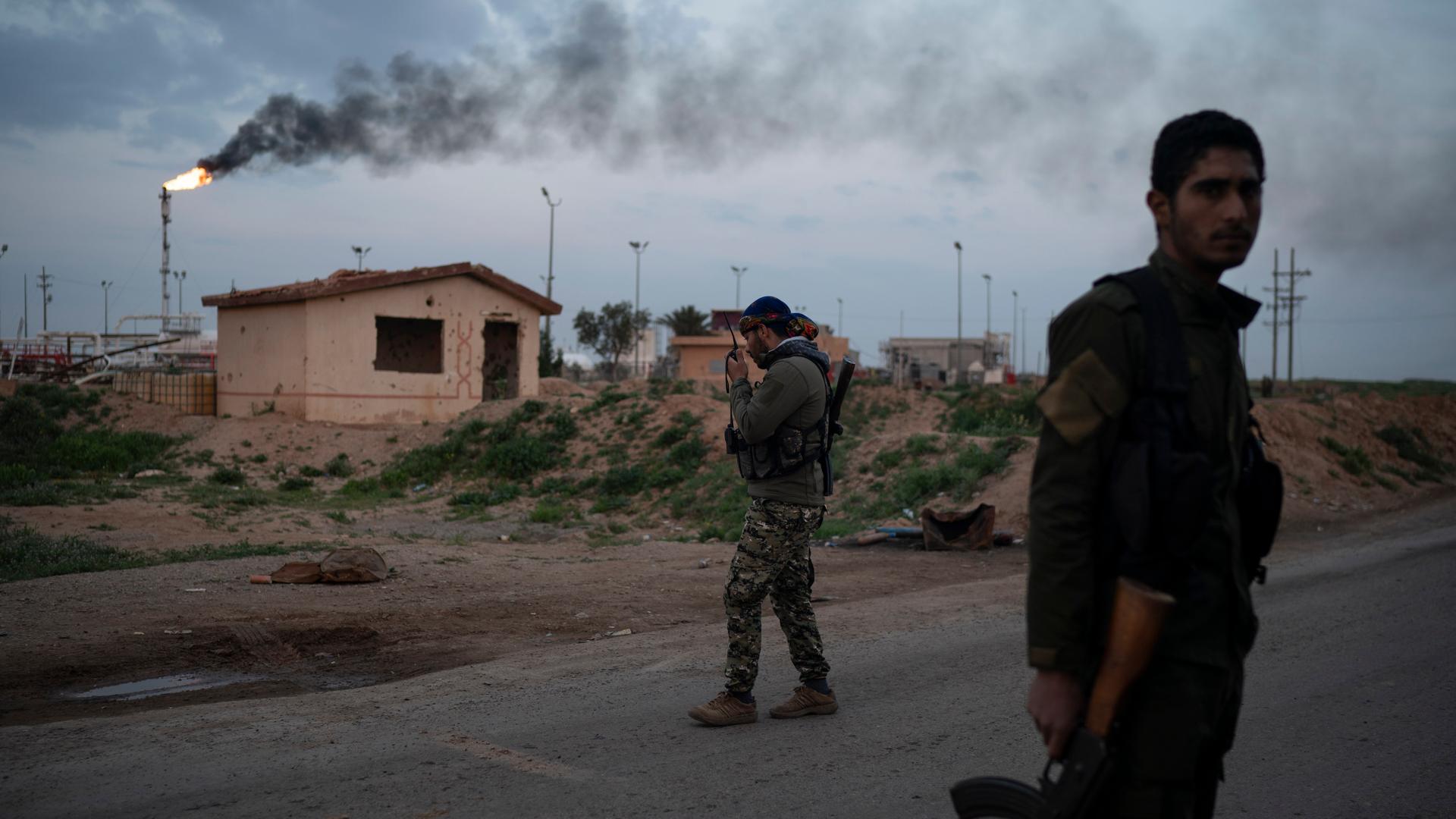The US-backed SDF, which is dominated by the YPG, the Syrian wing of the PKK, controls one-third of Syria including the country’s two biggest dams, along with several of its oil fields.
The PKK, which is recognised as a terrorist organisation by the US, NATO, the EU and Turkey, has launched a three-decades-long terrorist campaign against Turkey, killing tens of thousands of people including children and women in the process.
The YPG/PKK has used the dams and oil fields to produce electricity and oil, which have been sold to the Syrian regime and Kurdish-run regional government in northern Iraq, generating massive amounts of illicit financial sources to the terrorist group.
Raed al Raqawi, a relief activist from Syria, told TRT Arabi in a previous interview: “The PKK/ PYD [the political wing of the YPG] terrorist organization relies on its own primary refineries in all areas of its control, directly or indirectly [to fund its own militant activities].”
Raqawi recounted that the group employs people to sell oil to ordinary people in northeastern Syria. It also sells oil to the Syrian regime, some of the opposition groups, and Iraq’s Kurdish region, Raqawi said.
While Syria produced more than 400,000 barrels per day in 2008, its production drastically dropped to 24,000 barrels by 2018 as the civil war hit the country’s economy from all sides.
Despite the big reduction in oil production, the YPG/PKK has been able to generate millions of dollars per month from selling oil to different agents, having control over Deir al Zour, a region in eastern Syria, which is close to the Iraqi border, and the Hassakeh province in the country’s northeast, where most of the oil fields are concentrated.

Turkey has long been concerned about the YPG-PKK control across northeastern Syria, waging several military operations against the terrorist group, which has been funded by US-led coalition in the name of fighting with Daesh in the northern part of the worn torn country.
Ankara and Washington have serious differences over the US support to the YPG-PKK. The rift over the issue between the two NATO allies has escalated tensions from time to time. Even during Turkey’s third military operation, the Peace Spring, which has aimed to eradicate the YPG control from the areas close to the Turkish border, the NATO allies faced the prospect of confronting each other.
A crucial phone conversation between the US President Donald Trump and Turkish President Recep Tayyip Erdogan has temporarily addressed escalated tensions, resulting in American troops withdrawing from the border areas.
But later Washington reversed Trump’s full withdrawal promise, leaving half of its troops in northeastern Syria to protect the YPG/PKK, continuing to anger Turkey, which has taken over a crucial part of border areas in the operation last year.
Trump has explained the US rationale to stay there to own the Syrian oil.
“We want to bring our soldiers home. But we did leave soldiers because we’re keeping the oil,” Trump declared on November 1.
“I like oil. We’re keeping the oil,” Trump added.
Ahmed al Shibli, an activist source from al Raqqa governorate of Syria, where the YPG/PKK has still had a presence, confirmed that most of the oil revenues go to the US anyway.
“The terrorist organisation takes only 3 percent of the oil that goes to finance the salaries of its members and leaders, and the remaining oil, 97 percent, goes to America,” Shibli told TRT Arabi.

US direct funding to the YPG-led SDF
Besides electricity and oil revenues, the YPG/PKK terrorist group has also been receiving huge amounts of funding from Washington per year since 2015, when the US formed the SDF in northern Syria.
In 2021 fiscal year, Washington pledged to give $200 million to Syrian opposition groups among which the YPG/PKK will appear to take much of it.
This year the amount was more than twice as much as the next year.
According to the 2020 Pentagon budget, Washington has decided to allocate more than $500 million in total assistance to SDF expenses under Revolving and Management Funds.
UAE-Saudi support to the YPG/PKK
The two rich Gulf countries, which have been backed by the US and Israel, also support the YPG/PKK both militarily and financially according to various reports.
This year the financial support from both UAE and Saudi Arabia has also reportedly reached a level of $150 million.
In 2019, Thamer al Sabhan, one of the top Saudi foreign ministry officials, also paid a visit to Deir Ezzor governorate alongside with American officials, meeting senior YPG terrorists there.
Mazlum Kobane, the terrorist commander of the SDF, has also paid a visit to the UAE in late November, which has been connected to receive even more funds from the Gulf state.










Discussion about this post